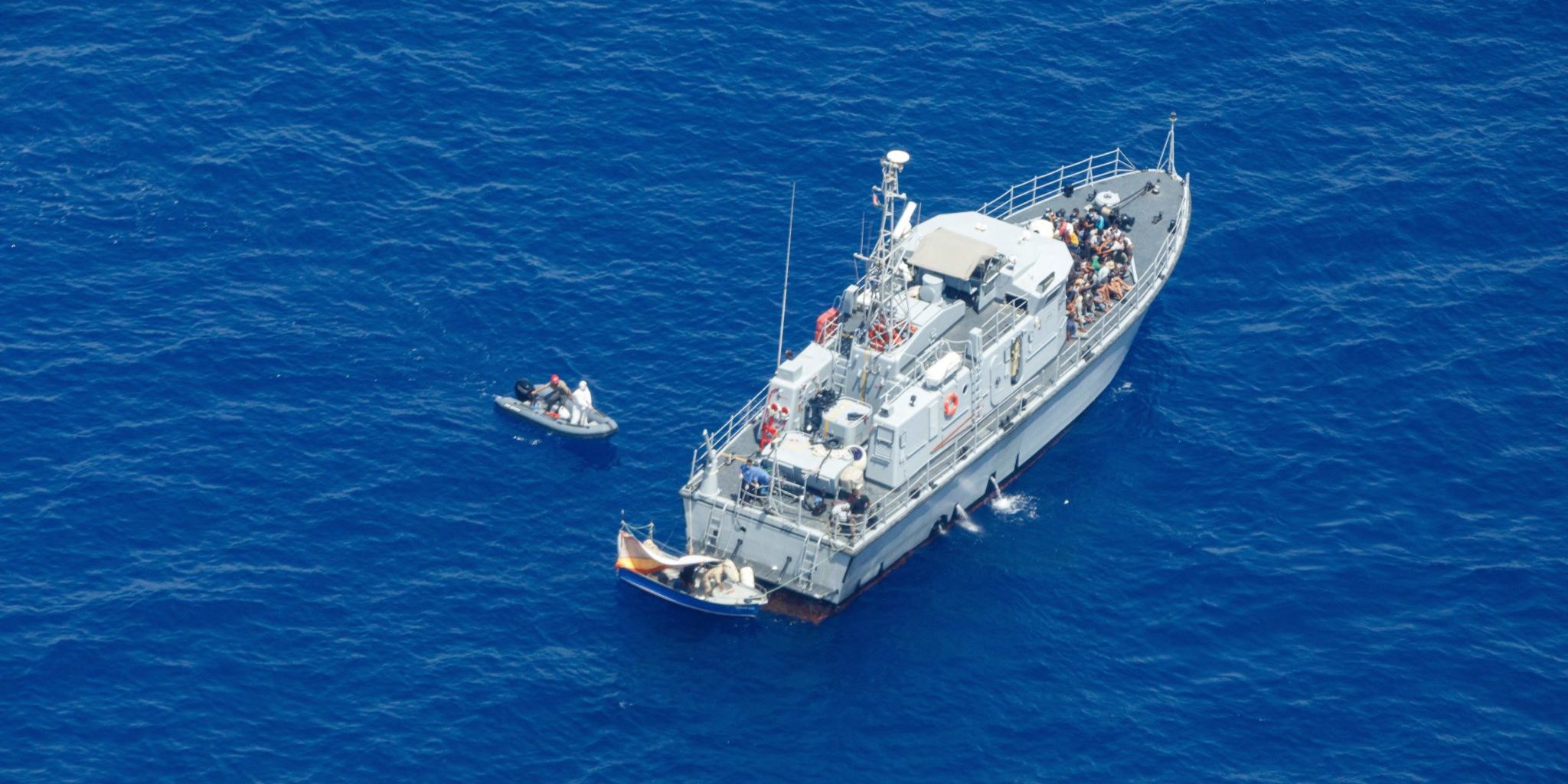The civil sea rescue organization Sea-Watch has filed a lawsuit against Frontex before the General Court of the European Union (EGC) in Luxembourg. Previously, the border protection agency had refused requests under the Freedom of Information Regulation.
Specifically, Sea-Watch refers to the case of a pullback on July 30, 2021, in violation of international law, which was witnessed by the Sea-Watch reconnaissance aircraft Seabird and the rescue vessel Sea-Watch 3. Within the Maltese search and rescue zone, a boat in distress with about 20 people on board was intercepted by the so-called Libyan Coast Guard and dragged back to Libya. The rescue ship Sea-Watch 3 was the closest vessel with rescue capacity but was not informed by any authority. Maltese officials refused to fulfill their duty to coordinate rescue efforts and ensure that people in distress at sea were taken to a safe place, as required by international maritime and human rights law. Before the interception of the boat, a Frontex drone was repeatedly on scene and in the vicinity of the distress case. Therefore Frontex must be assumed to have been involved in the pullback in violation of international law.
After a request under the Freedom of Information Regulation about Frontex’s operation on 30.07.2021, the border agency repeatedly refused to release the requested information. What Frontex disclosed is the amount of data available, but not its content: 73 documents, footage and one video were identified that relate to the date of the Sea-Watch request. Among them were 36 documents on the exchange of communications between Frontex and Libyan, Italian, and Maltese authorities on that specific day alone.
With the support of the organization FragDenStaat, Sea-Watch has therefore filed a lawsuit against Frontex before the General Court of the European Union to obtain the release of the withheld information in order to prove that Frontex is complicit in Human Rights violations in the Central Mediterranean.
‘While Frontex preaches transparency, it operates like a secret service in reality. The border agency denies any information with the argument of public security, while at the same time, people are dragged back into torture and insecurity in violation of international law. What Frontex means when speaking of public security is solely the protection from its own liability for its involvement in human rights violations’, says Marie Naass, Sea-Watch Head of Advocacy.
‘Frontex has a legal obligation to be transparent about its operations — and yet the border agency systematically denies access to information about its actions, in the Central Mediterranean and elsewhere. This is a dangerous pattern. Without transparency we cannot hold Frontex accountable, creating breeding ground for impunity and further abuse’, says Luisa Izuzquiza, FragDenStaat Brussels Liaison.











